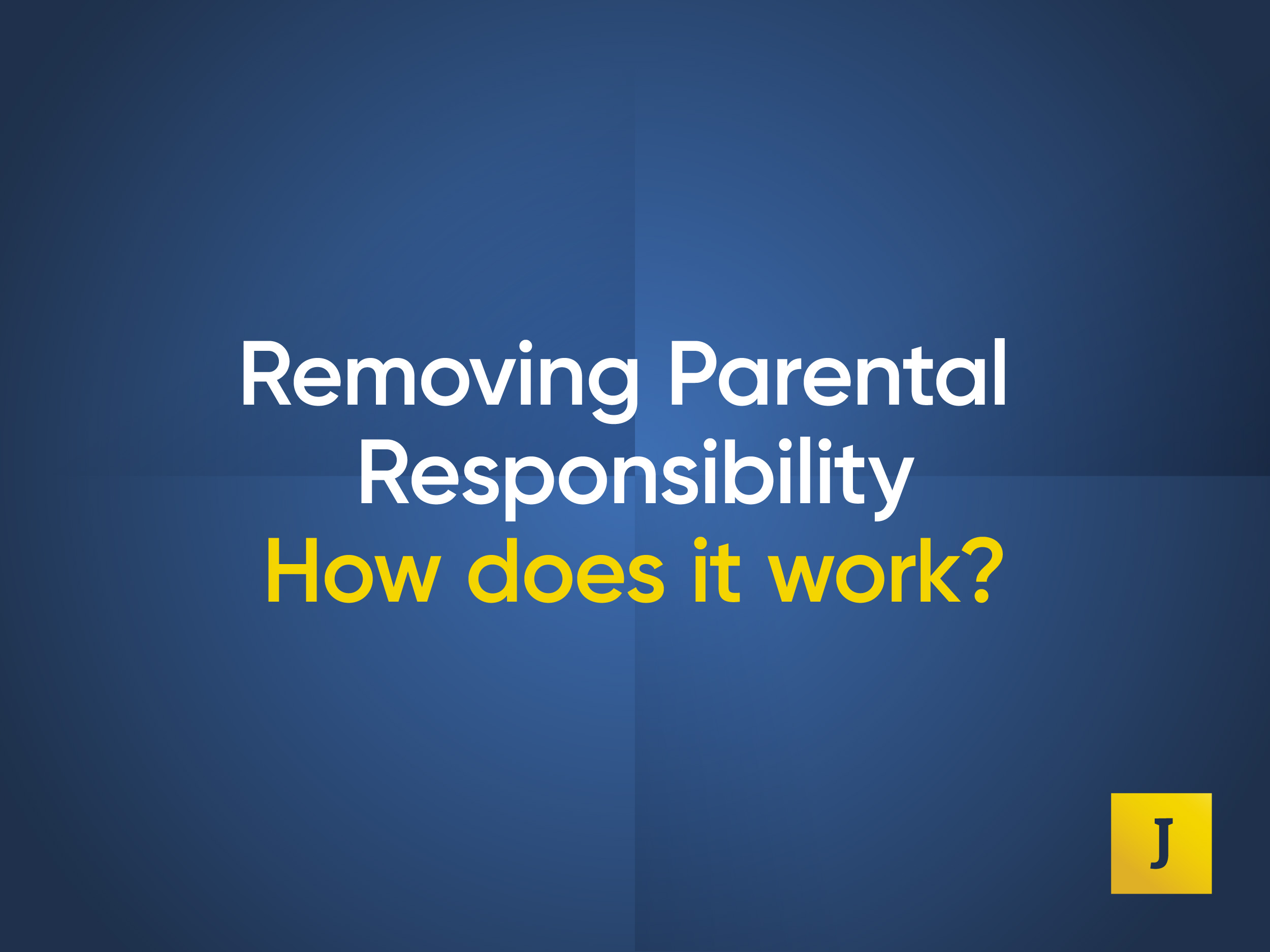Parental responsibility is defined in the law as all the rights, duties, powers, responsibilities, and authority, which by law, a child’s parent has in relation to the child and his property.
This means that the parents or guardians of a child can make decisions regarding the child’s welfare and upbringing.
It is becoming more common in legal practice that one parent seeks legal advice to remove the parental responsibility of the other parent.
In this article, we explore the potential reasoning behind the removal of parental responsibility and how the process may work with Family Law Solicitors.
How is parental responsibility acquired?
Parental responsibility can be acquired in several different ways and by a variety of people, including a Local Authority in Public Law Care Proceedings.
The most common way for parental responsibility to be granted is direct to a mother from the child’s birth. A father’s parental responsibility is usually obtained if the father is married to the mother at the time of birth, or if they are named on the birth certificate (from 1st December 2003).
Without either of the above being satisfied, a father, under English and Welsh law, does not have an automatic right in the same way that a mother has.
Why would someone seek to remove parental responsibility?
Such reasons someone may want to seek legal advice to remove another parent’s responsibility may include:
- Not paying regular child maintenance
- Not having consistent contact with the subject child/ children
- Having a new partner and starting a new life with other children
These, however, are not significant reasons for someone’s parental responsibility to be removed.
For a mother, the only circumstance in which her parental responsibility is terminated is as a result of an Adoption Order being made or, if a Parental Order is made (this is in respect of a surrogate mother).
A father can also lose his parental responsibility if an Adoption or Parental Order is made, but he can also lose his parental responsibility through a Court Order.
This, however, is not as common as people often think and is very rare for the Court to endorse. The Court will consider a child’s welfare as the paramount consideration.
There are a few limited cases in this area of family law, and removal of a father’s parental responsibility has only occurred in the following instances:
- A father has committed sexual assault on a child, causing physical and severe emotional damage as a result of the assault
- There has been serious domestic violence and it was proven that the father posed a serious emotional and physical risk to the children
- To protect the mother’s and children’s safety
It is therefore clear that parental responsibility can only be terminated in real exceptional circumstances and is not as common as thought.
What do you do if you or your children are in need of legal advice?
If you believe that any of the exceptional circumstances apply to you or your children, please immediately seek legal advice from a Family Law Solicitor.
Though legal aid is not available for an application to remove parental responsibility on its own, there may be other Orders that you may wish to apply for if one of the exceptional circumstances apply to you.
How can Jefferies help you?
Our team of highly qualified Family Law Solicitors are here to help you, offering confidential, practical, and specialist advice to help you address your situation.
Speak with an expert Family Lawyer by emailing familylaw@jefferieslaw.co.uk or alternatively, contact our offices directly on 01702 332 311.
Jefferies Solicitors Essex assists clients from Southend, Chelmsford, and Surrounding areas; our team of highly qualified Family Law Solicitors in Essex are here for you. Whether you need a Divorce Lawyer or a Medical Negligence Solicitor, we can help.
The contents of this article are for the purpose of general awareness only. They do not purport to constitute legal or professional advice. The law may have changed since this article was published. Readers should not act on the basis of the information included and should take appropriate professional advice upon their own particular circumstances.
Author: Abbey McElroy, Solicitor at Jefferies Solicitors.

